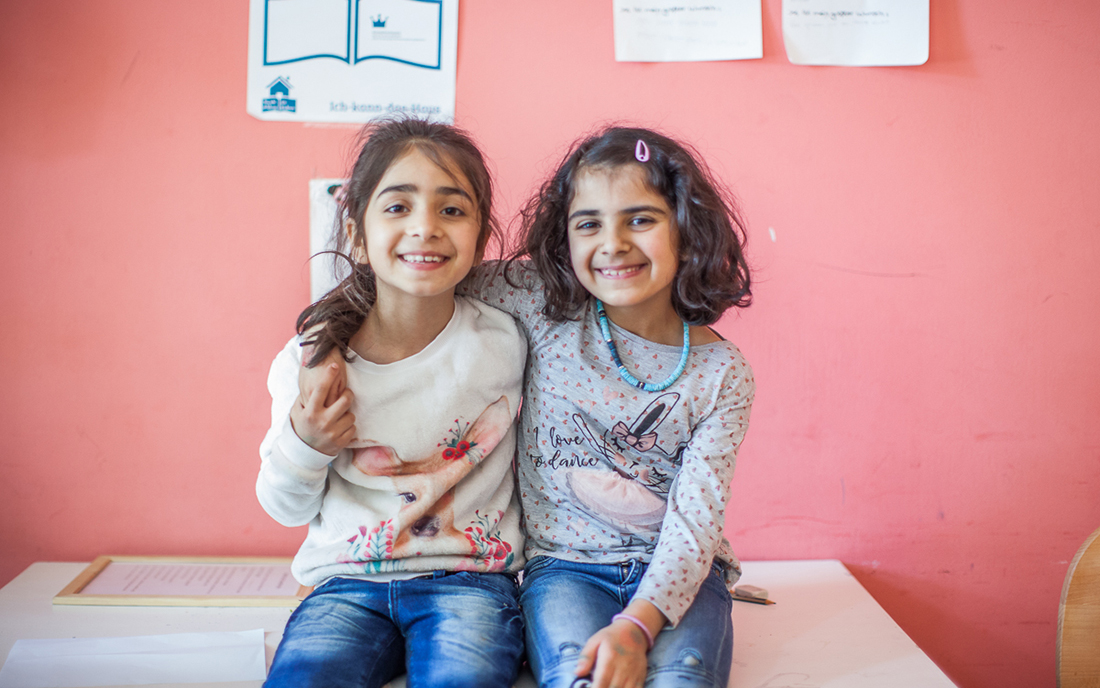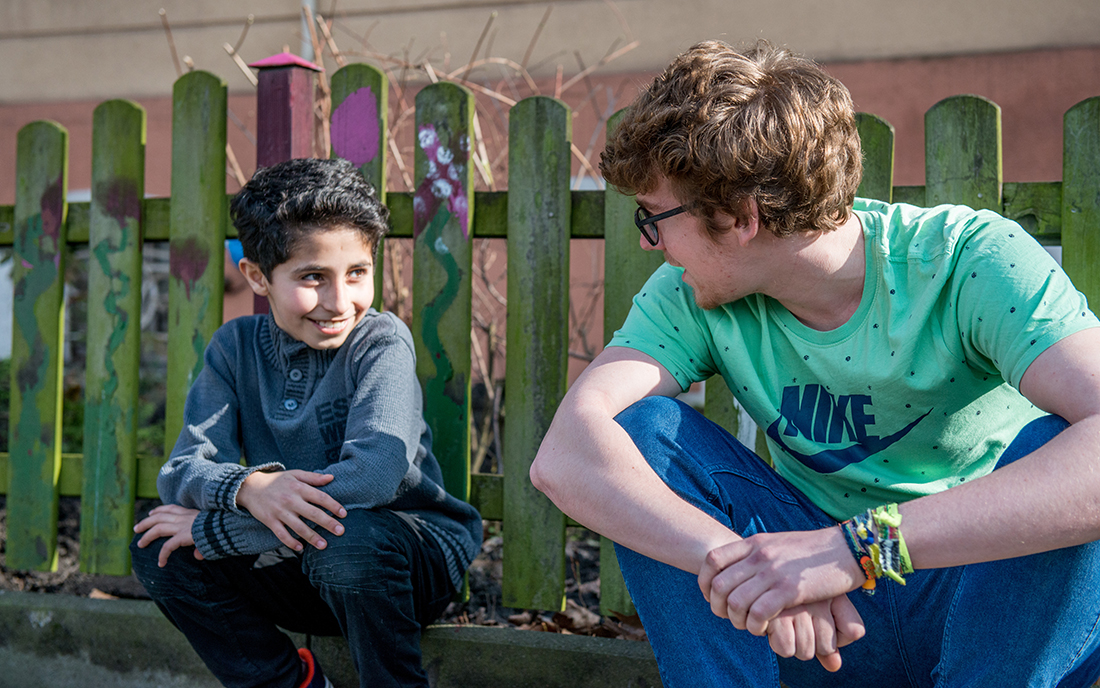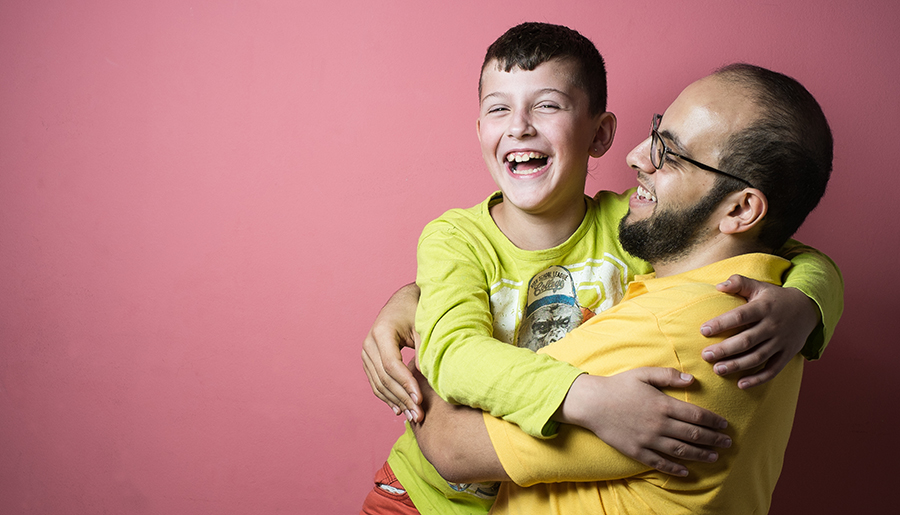How a social innovation from Duisburg empowers children from deprived neighborhoods

In many socially deprived neighbourhoods, public authorities find it difficult to provide a good education for children and youth. This is where social innovators like the German social startup “Swap education for housing” comes in, whose peer-to-peer mentoring scheme in Duisburg-Marxloh now is replicated in other cities.
The idea is simple: The non-profit Tausche Bildung für Wohnen (“Swap education for housing”) offers young people the opportunity to become a peer-to-peer mentor for children and youth in challenging district struck by unemployment and a high rate of ethnic minorities – in exchange for rent-free living in a shared flat with other youth mentors. While housing is expensive in many places, rents in districts such as Duisburg-Marxloh – considered to be a no-go area by some media – are low and vacancy rates are high. The offer addresses young adults who plan to go to university in the Ruhr area or who are looking for a social mission for their gap year.
The organization “Swap education for housing” succeeds in attracting young people who would otherwise never move into a neighborhood with such a bad reputation and which hardly anyone knows from a first-hand experience. This change of perspective is enriching for both sides: It helps to break down prejudices. Moreover, it shows that positive social change depends to a large extent to your peers.

The main place of activity of the Duisburg-based organization is the so-called “Tauschbar” (swap bar), where each youth mentor takes care of a group of up to 5 children and young adolescents from the neighborhood. The activities range from playing and having fun to doing schoolwork together. The Tauschbar offers a protected space in which the children and youth can be without external pressure from school or parents. It is a great benefit that the mentors live across the corner and that they are not sent by the school or the social welfare. This helps building trust, which is the single most success criteria of the program. it is this trusted relationship which helps to access the children and youth. Often, the youth mentors also accompany the children to school, where they can help to overcome language barriers.
«To respect and honor each individual’s capacities and to make education inclusive are key priorities for us» Christine Bleks, Co-Founder Tausche Bildung für Wohnen
The organization lives up to its values and makes education as inclusive as possible. The Tauschbar is open for everyone, including refugee or newly arrived children who have not yet been assigned a school place. The Tauschbar provides fruit and cheese sandwiches to all; nobody needs to suffer from hunger.
In the end, the social startup jumps in where public agencies and initiatives related to education, social work or neighborhood development fail or find it difficult to make change happen. The female founder, Christine Bleks, argues that challenging neighborhoods would need the best teachers, the best schools and the best childcare to break the vicious circle. Reality is different.

The potential for scale and replicate the program is unlimited. After all, there are disadvantaged neighborhoods in many places. What is the bottleneck? It’s not finding dedicated education mentors. The true challenge is to develop a self-sustaining business model where the private sector takes over public functions without benefiting from tax money.
One of the first ideas was to participate in the scheme of government paid education vouchers to pay for the costs of the mentoring scheme. However, it did not work because a misfit of administrational requirements. A social innovation such as the “swap education for housing” scheme simply has not been budgeted for in any public spending programme.
It is therefore remarkable to see that the founders keeps track in building their education mentoring venture even though their own funding was at risk several time already. This seems to improve now. The value of their work is recognized by more and more people and institutions. Last year, the organization started to replicate its concept at a second location, which is equally challenging: Gelsenkirchen-Ückendorf. The idea to replicate the concept in other cities is something the team had been thinking of ever since. In 2012, when Christine Bleks and her co-founder Mustafa Tazeoglu started to frame the basic concept of “Tausche Bildung für Wohnen”, they pitched the idea of a social franchise scheme at a social entrepreneurship competition run by the Vodafone Foundation, and won the first prize. Let us hope that the time is ripe now to replicate and scale this successful model.

You have questions or suggestions? Write us!
Dr Andreas Renner, Co-Founder GOOD: andreas@good-search.org

